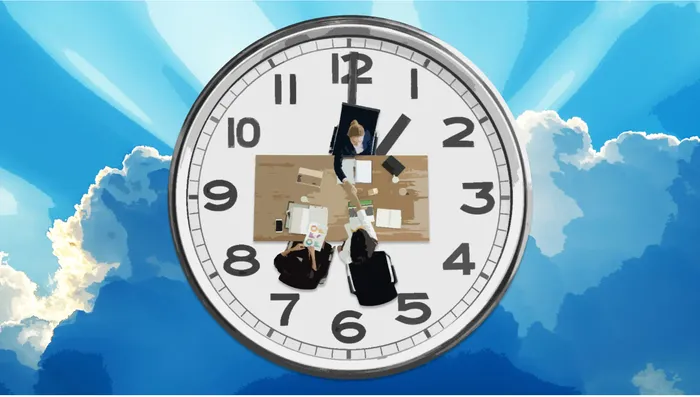
.
Image: Saksit/Adobe Stock, Martin Bergsma/Adobe Stock, Sean Hoong/Adobe Stock
You landed a job interview: You’ve researched the company, reread the job listing, and practised your talking points. But have you considered the importance of choosing the right time of day to interview? According to new research, when you interview might impact how well you do.
In a study analysing the timing and performance of Italian students in oral interviews—which are required to pass many classes at Italian universities—researchers found that the time of day had a big impact on students’ likelihood of success. Researchers believe the study could shed light on successes and failures in other high-pressure situations, like job interviews.
Researchers utilised a University of Messina database of interview-style exam results from October 2018 to February 2020. Data from more than 100,000 exams revealed that the rate of students who passed followed a bell curve that peaked between 11 a.m. and 1 p.m. and was much lower in the early morning and late afternoon.
The research was inspired by a study that found judges are more lenient in their sentencing at the beginning of the court session or after meal breaks, says Carmelo Vicario, a neuroscientist at the University of Messina and lead author of the new study. After seeing the data on judicial rulings, Vicario says he was interested in discovering whether the same principle might apply to other fields, including education.
“This was, of course, a completely different field,” Vicario tells Fast Company. “But we found this similarity.”
Since the study analyses existing data, rather than data from controlled trials, Vicario says he isn’t able to confirm exactly why the middle of the day seems to be when students are most successful. Still, the researchers have a number of theories.
For starters, since younger people tend to be night owls and older people tend to prefer the morning, the middle of the day might help mitigate the clash between these “chronotypes,” or biological rhythms that impact how alert people are throughout the day. Between 11 a.m. and 1 p.m. could be a middle ground when both students and their professors are in their prime.
This same mismatch between chronotypes could contribute to the difference in interview success during the hiring process for young workers being interviewed by more senior employees, adding to the bias that an estimated 36% have against Gen Z candidates, according to a recent ResumeBuilder survey.
More than 80 genes regulate the circadian rhythms behind different chronotypes, and people consistently operating outside the hours that work with their circadian rhythm can experience issues with productivity, as well as health problems and work-related anxiety.
To help overcome bias related to the time of day, experts have a few tips that can be applied to everything from exams to job interviews and beyond, such as offering flexible meeting hours and scheduling collaboration when both parties have high energy levels.
“By recognising biological differences in how and when people work best—and making room for that diversity—leaders can reduce hidden bias, unlock untapped potential, and build more productive and inclusive teams,” Camilla Kring, a researcher who studies applied chronology, wrote in a recent article for Fast Company.
Still, authors of the new study note that more research is needed to determine whether mismatched chronotypes are the hidden force behind varying interview success.
“Even this is a speculative interpretation,” Vicario says, noting his hope that this work will inspire future research that helps to pin down exactly why interviews in the middle of the day tend to go better. Vicario also hopes people will consider researching the impact of timing on decision-making in other high-pressure situations.
“When there’s a kind of pressure, the influence of the time of the day can be stronger compared to when you have a large amount of time to evaluate the details of the situation,” Vicario says. “Being aware [of timing’s impact] can make decisions fairer.”
ABOUT THE AUTHOR
K.R. Callaway is an editorial intern at Fast Company, where she covers the intersection of science and business.
